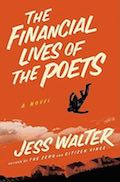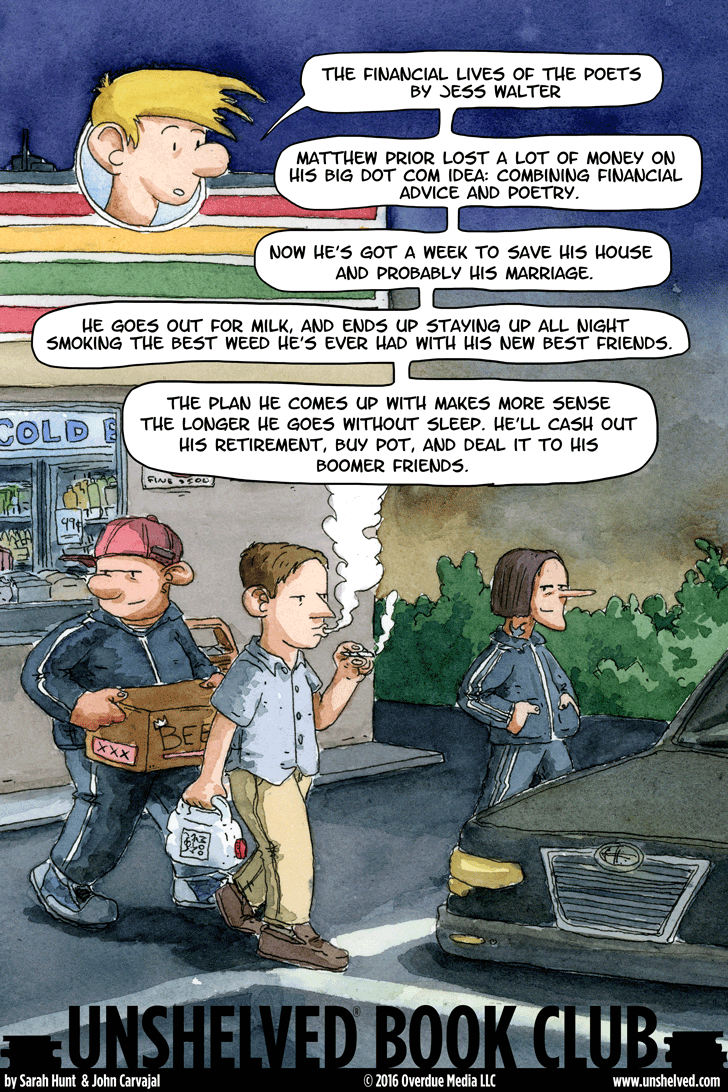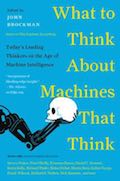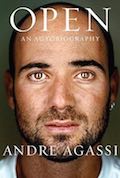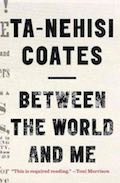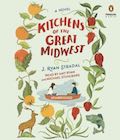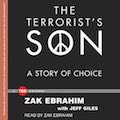Link to this review in the form of a comic strip by sarahhunt tagged literary
Link to this review by wally tagged nonfiction • essays
John Brockman, the publisher of the online science salon Edge.org, asked 186 of the world’s leading thinkers, “What do you think about machines that think?” Their answers cover a lot of ground, and the essays are easy to digest, most being about two or three pages long. Some consider the old science fiction trope of an AI replacing humanity. Steven Pinker’s essay “Thinking Does Not Imply Subjugating” declares that our fears are an emotional waste of time. John Markoff, in “Our Masters, Slaves, or Partners?” begins by noting Hegel’s remark that in the relationship between master and slave, both are dehumanized, and that therefore we would do well to establish a morally correct relationship with our machines. George Church, in “What Do You Care What Other Machines Think?” declares that he is a machine that thinks, made of atoms, and so the question is a bit moot. Bruce Sterling, in “Actress Machines,” points to all the entities like Siri (and to the power behind the curtain) and asks who is running these things?
Why I picked it up: Nearly 200 essays about the future of artificial intelligence was enough to get my interest, and a look at the list of contributors sealed the deal.
Why I finished it: Compelling themes ran throughout the essays: as man vs. machine, definitions of intelligence, and definitions of consciousness. Plus the contributors are all stellar, including Steven Pinker, Freeman Dyson, Daniel C. Dennett, Esther Dyson, Gregory Benford, and many more.
It’s perfect for: Bennett, who loves those science fiction movies like 2001: A Space Odyssey and Blade Runner, in which artificial intelligence gets too smart for its own good (or at least for humanity’s own good). He’d be relieved to see people like W. Daniel Hillis (“I think, therefore AI”) parse the question of super-powerful computers into its fundamental nugget, arguing that since it’s inevitable the machines will surpass us we must design them to include our values.
Link to this review by flemtastic tagged biography
Andre Agassi was a tennis prodigy from the first time he stood on a court. His overbearing father created a custom tennis-ball-shooting machine called “the dragon” that Andre hated practicing with, and moved the family to a house in the Las Vegas desert that had room for a tennis court. In fact his father pushed him so relentlessly that he sent Agassi away to a tennis academy in Florida at age thirteen, making his son feel lonely and cast aside. Despite the fact that Agassi said he hates tennis and always has, he excelled, turning professional at a very young age. With his wild hair and crazy clothing (denim shorts were his trademark for a while), he became a star, eventually winning twelve Grand Slams, including the Career Slam (at least one of each of the four tennis Majors). Throughout he struggled with his inner demons, self-doubt and an unhealthy need for perfection.
Why I picked it up: I was telling the Varsity Tennis coach at a nearby high school about Federer and Me: A Story of Obsession, a book about a passionate fan of tennis player Roger Federer, and she said, “If you like that, you should read Open by Agassi, it will blow your mind.” So I did.
Why I finished it: Agassi has the rare mental ability to remember what he was thinking and what he did physically at major points in his matches, going all the way back to his junior tournaments. His recall of Grand Slam events, regional qualifiers, and the granular level of his thoughts and actions during a single point make this book a must read for any tennis fan.
What makes this a great read for anyone, tennis fan or not, is his brutal honesty. Admittedly nervous and an over-thinker, Agassi admits folding or doubting himself, that he did not believe he could beat his nemesis, Pete Sampras, in big matches. I was surprised at the level of intimacy, particularly when he admitted to using crystal meth with his personal assistant and failing a drug test on the ATP (Association of Tennis Professionals) tour.
It’s perfect for: My friend Amy, who has struggled with her self-image after a tumultuous relationship with her own father. She would empathize with Agassi, who felt emotionally tortured by his, even at the peak of his success.
Link to this review by emilyreads tagged nonfiction
Ta-Nehisi Coates is a nationally renowned author, journalist, and the recipient of a 2015 MacArthur Foundation “Genius Grant.” But when he’s in public, he’s just another black body, like millions before him, weighed down by prejudices, low expectations, and our shameful national history. In a country obsessed with the idea of race and an American Dream that seems accessible only to people who, in Coates’s words, believe they are white, Coates struggles to claim not only his own humanity, but also that of his teenage son (to whom he writes the book). ”Black people love their children with a kind of obsession,” he says. “You are all we have, and you come to us endangered.” This is a slim, exacting, and crucial contribution to conversations about race, bias, and justice.
Why I picked it up: This National Book Award winner was one of the most talked-about books of 2015. I knew it would be a difficult and painful read, but a necessary one.
Why I finished it: My husband and I have friends from college, a highly educated black couple from Minnesota and Tennessee, with twin boys. Every page made me think of those boys — they’re adorable, guileless toddlers whom I just watched shrieking with glee over soap bubbles floating in the air. Our white son will be able to do things, to go places, and to make mistakes as he grows in ways these boys never will — at least not without considerable risk to their very lives. That’s insane, and it’s infuriating. I can’t take off my Invisible Knapsack of White Privilege, but I can do my best to listen to and amplify the voices that remain unheard.
It’s perfect for: I would give this book to every Presidential candidate. Then, instead of yet another dog-and-pony-show debate, let’s have a book discussion moderated by Coates, Gwen Ifill, and Condoleeza Rice. The focus: how are we going to fix this together?
Link to this review by dawnrutherford tagged audiobook • literary
Eva Thorvald grows up knowing that she loves food more than just about anything in the world, but has no idea that she is the daughter of a chef and a sommelier. Her mother, believing herself unfit to parent, ran off to Australia’s wine country. Her father dedicated himself to lovingly developing her young (and unbeknownst to him, miraculous) palette, but died from a heart attack before Eva was old enough to remember him. Her well-meaning aunt and uncle adopted her as their own and never told her about her birth parents. Despite their denial and bland cooking, Eva will follow her palette to her culinary destiny.
Why I picked it up: I went to library school in Illinois and spent some time exploring the Midwest. It is a special region and a terrific place to eat.
Why I finished it: This book is a really outstanding piece of literature. Broken into eight food-titled sections, it zooms in and out of Eva’s life from both her perspective and that of others who love or hate her. There is an air of mystery as the many secrets of Eva’s life grow to legendary stature in both her psyche and the food world.
The audiobook emphasizes the characters’ rich voices as both Ryan and Stuhlbarg portray a variety of characters in dead-on Midwest accents.
Readalikes: Unlike Eva, Molly Wizenberg is not terribly secretive. She has been blogging her life at Orangette for years, sharing her cooking, love life, and restaurant development with thousands of strangers. Like Kitchens of the Great Midwest, her books A Homemade Life and Delancey are filled with recipes that are both evocative of place yet accessible to everyone.
Link to this review by diane tagged biography • audiobook
When Zak Ebrahim was seven, his father, El-Sayyid Nosair, shot and killed the founder of the Jewish Defense League, Rabbi Meir Kahane. Later, from his prison cell, he helped plan the 1983 bombing of the World Trade Center. Despite being raised in a strict Muslim family that attempted to indoctrinate Ebrahim in the messages of hate espoused by his father and other male relatives, Ebrahim saw flaws in those teachings and has chosen instead to speak out against bigotry and for understanding.
Why I picked it up: With the rise of ISIS, I’ve been curious about the motivations of the terrorists — why some make the choice to commit heinous crimes.
Why I finished it: Ebrahim reads his memoir, and his voice adds to the sincerity and emotional impact of the story. Because he was so young when his father became radicalized and shot the rabbi, it was easy for me to get caught up in the turmoil of his childhood. I teared up several times as he related how his family was forced into virtual homelessness, how he suffered at the hands of bullies at school, and how his stepfather abused him and his mother. I also laughed at his stories of his job at Busch Gardens and the way he was influenced by Jon Stewart and The Daily Show. He really is a gifted, motivational writer and speaker. When I finished the audiobook, I watched his TED talk, which led to his writing this book.
It’s perfect for: My colleague, Brett, who teaches a senior level class in Contemporary World Issues. Since Ebrahim’s survival is the story here, his realization that he could make the choice to be different and live without hate is ultimately uplifting and inspiring. It’s a perfect book and video for Brett to share with his students as they try to understand recent events.
